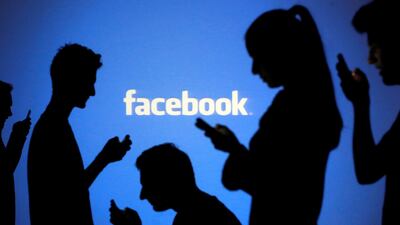A US commentator observed last week that social media has broken society's collective brain and only the industry's dominant companies could fix it.
Certainly Facebook, for one, has been caught out. An academic study found that the intensity of Facebook use in small German towns directly correlated to attacks on immigrants. Moreover, the power of Facebook in those areas was underlined by a drop in attacks when the internet suffered an outage.
But to jump to the conclusion that Facebook can heal itself is a damaging mistake. Because social media networks have utterly changed the rhythm of life, both at an individual level and collectively.
Anyone who has not picked up a phone or logged on for a quick glance at social media only to emerge more than an hour later is a modern day hermit. Facebook, Twitter even Google Plus have become traps for the human mind and the good is often negated by the bad or just plain wasteful.
Broadly, the vision of a wide-open internet has regressed into a series of micro-pools. Users circulate false or misleading information within their own small circles. This echo chamber relentlessly feeds localised unrest or extremism.
As the film The Social Network made clear, Facebook's origins lie in a vision of both providing a platform for social connection and maximising the time spent by users on the site.
Nothing has so far suggested that the people behind that ideal will ever give up on their basic premise. Even if they did, there are plenty of others who will devise mathematical versions of the same nirvana. A gambling game devised by the Chinese firm Tencent used AI to eliminate every breakpoint that led players to give up the game. Each tweak led to individualised user experiences and the time spent – and revenues acrued by Tencent – soared.
Eventually Beijing stepped in to ban the game. Under China’s command capitalism rules, Tencent was ordered to remove it and duly did so.
There is notable difference between official responses in the East compared to the West.
American and European politicians have been “working with” firms like Facebook to tidy them up for several years. Billboards proclaim Facebook’s hostility to fake news. The firm has hired tens of thousands of mediators to authenticate and remove suspect content.
All this effort by the tech giants is a small but significant hit on their bottom line. It genuinely addresses egregious practices.
Yet the overarching abuse continues. The US authorities are steeling themselves for Iranian and Russian interference in November's midterm elections. The scale of the problem transcends piecemeal efforts to counter mendacious campaigns.
An obvious solution is state regulation that closes down output on social media to ease social friction.
The researchers in the German study on anti-migration extremism highlighted the problems with the regulatory panacea. Much of the material that the study uncovered was not "hate speech" per se but slanted material that spoke to its audience and was cultivated to produce heightened emotions among a sympathetic group.
Regulation is often a good idea in the abstract. But attempts to grapple with issues on the basis that "something must be done" have a woeful record. Europe’s big punt on the General Data Protection Regulation regulations earlier this year has already backfired. Platforms that have the scale to comply with the rules are benefitting from a concentration effect as other less capable or less interested outfits withdraw.
It is a massive leap to assume some sort of international data police force, with the powers to build fences around social media, would or could work.
A return to first principles offers a better way forward.
The modular nature of social media – it is built on bytes – means that the first building block of regulation can come through taxation. A long-delayed net suspended above the industry must now descend. That it has not already is the foremost indictment of governments across the world. The original sin is taking Bill Clinton’s pledge not to tax the information super highway as a permanent injunction.
Once the output of the social media platforms is within the state regulatory tax frameworks, the sector is fair game for additional measures.
A tax breakthrough would clarify that the social media companies are not globalised self-regulating entities. The dichotomy between the companies operating as platforms but not publishers would then loom large.
As an interim step countries must develop strategic techniques to fight fire with fire. As regulated entities, social media companies could find a role more useful than self-censors.
Unacceptable messages can be removed but that is spitting in the wind. And the circulatory nature of social media systems means this not always the biggest problem.
Now more than ever, the social network needs a framework that is fit for purpose.

